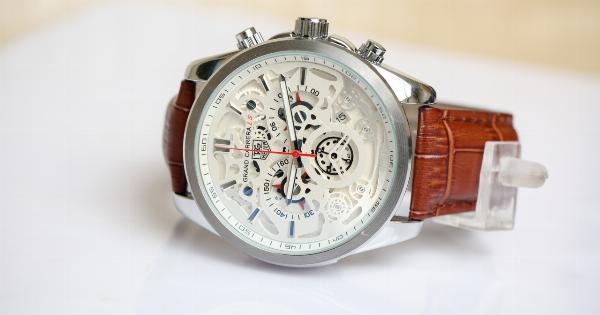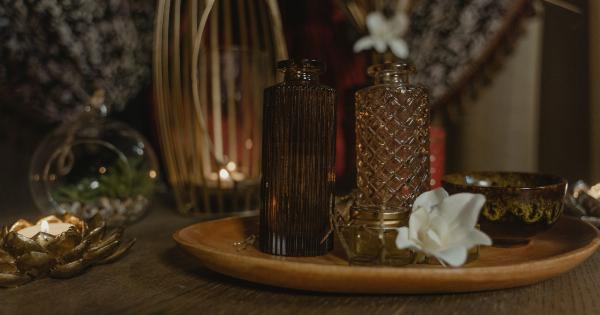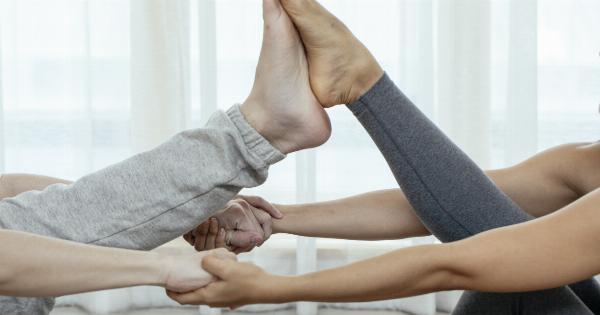Women’s behavior is often a subject of fascination and speculation. In various social settings, it’s not uncommon for men to misinterpret women’s actions as signs of romantic interest or attempt at seduction.
However, it’s important to recognize that women’s behavior is nuanced and multifaceted. Not every interaction or gesture from a woman should be interpreted as a come-on. In order to truly understand women’s behavior, it’s crucial to debunk common misconceptions and explore the complexity of their actions.
Misconception 1: Friendliness equals flirting
One common mistake that men make is assuming that when a woman is friendly, she must be interested romantically. However, women are just as capable of being friendly for the sake of being polite or creating a harmonious social atmosphere.
It’s important not to misconstrue basic acts of kindness as romantic advances. By assuming every friendly interaction from a woman is a come-on, men may overlook valuable friendships or misinterpret social dynamics.
Misconception 2: Fashion choices and personal style as signals
Another misconception is the belief that a woman’s choice of clothing or personal style is an invitation for romantic attention.
It’s crucial to understand that women often dress and express themselves for a variety of reasons that extend beyond attracting male attention. Women’s fashion choices can be about self-expression, confidence, cultural influences, or simply personal taste. Assuming that a woman’s clothing is solely for seduction perpetuates harmful stereotypes and objectification.
Misconception 3: Being assertive is not a come-on
Women who assert themselves, voice their opinions, or take charge in various situations are often misinterpreted as making advances.
However, it’s important to recognize that boldness and assertiveness do not automatically equate to romantic interest. Women have the right to express themselves confidently without it being misconstrued as an invitation for a relationship or sexual encounter. It is essential to value and respect a woman’s agency without assuming ulterior motives.
Misconception 4: Engaging in casual conversation
Engaging in casual conversation does not necessarily mean a woman is interested romantically. Women, like men, enjoy the opportunity to connect and socialize without any hidden agenda.
Simply talking or having a friendly chat should not be mistaken as a come-on. Assuming otherwise can lead to misunderstandings and discomfort, discouraging women from engaging in natural and open conversations.
Misconception 5: Enjoying physical touch and affection
Physical touch and affection are not always indicators of romantic interest. Human beings, regardless of gender, thrive on the connection and comfort provided by touch.
Women, like men, appreciate hugs, handshakes, or pats on the back as gestures of friendship, comfort, or camaraderie. Assuming every touch from a woman is an invitation for more can lead to discomfort and miscommunication.
Misconception 6: Being helpful is not a romantic signal
Women naturally possess empathy and a desire to help others. However, offering assistance, advice, or support does not automatically imply romantic intentions. Women can engage in kind acts without desiring anything beyond friendship.
Interpreting every helpful gesture from a woman as a come-on undermines the value of platonic relationships and reinforces negative assumptions.
Misconception 7: Displaying confidence and self-assuredness
Confidence is an attractive trait, regardless of gender. When women display confidence and self-assuredness, it should not be assumed that they are seeking romantic attention.
Confidence is an important aspect of personal growth and development, and women have the right to exude these qualities without their intentions being misinterpreted. Appreciating and celebrating confident women without jumping to romantic conclusions is pivotal.
Misconception 8: Women can have male friends without ulterior motives
It is entirely possible for women to have genuine friendships with men without any romantic motives. Assuming that every male-female friendship harbors hidden romantic feelings is unfair and dismissive.
Friendships between men and women can be fulfilling and meaningful without any expectation of romantic involvement. Recognizing and respecting the existence of platonic relationships is crucial in understanding women’s behavior.
Misconception 9: Socializing without an agenda
Women often socialize in various environments purely for the enjoyment of human connection and shared experiences. Not every social gathering or event has a hidden romantic agenda.
Assuming that every social interaction from women has ulterior motives limits the ability to form genuine connections. Women, like men, seek companionship, adventure, and camaraderie without it having to involve romance.
Misconception 10: Non-verbal cues can be misinterpreted
Non-verbal communication, such as body language and facial expressions, can often be misleading. It’s important to recognize that misinterpreting non-verbal cues can result in misunderstandings and uncomfortable situations.
Women, like men, may exhibit certain non-verbal cues that are simply a reflection of their personality or mood, rather than an invitation for a romantic encounter. Taking the time to communicate openly and clarify intentions is crucial in avoiding assumptions.
In conclusion, women’s behavior should not hastily be interpreted as a come-on or romantic gesture. It is important to debunk common misconceptions and approach women’s actions with a nuanced understanding.
By recognizing that women’s behavior is multifaceted and varied, we can build healthier and more inclusive social dynamics. Valuing and respecting women’s agency and intentions is paramount in fostering genuine connections, establishing meaningful friendships, and embracing diversity.




























